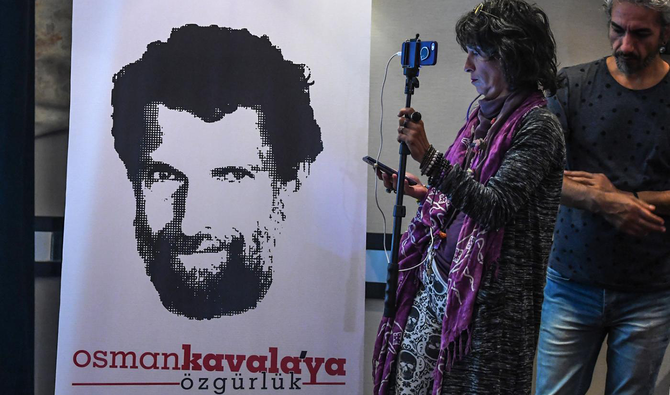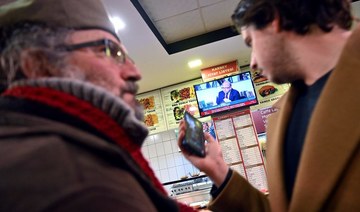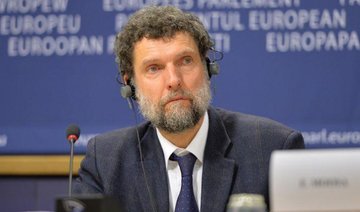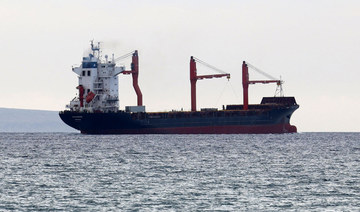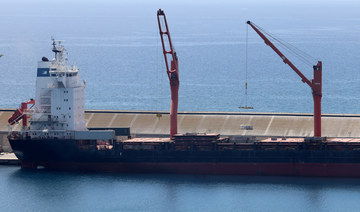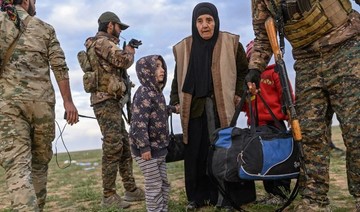ANKARA: Turkey’s top court has again delayed the appeal of Turkish philanthropist and activist, Osman Kavala, for release from his detention of more than three years, despite the fact he has not not been convicted on any charge.
On Tuesday, the First Chamber of Turkish Constitutional Court deferred the application of Kavala to the Grand Chamber. It is the second time that the court has delayed his appeal. Experts note that the move is to gain time before the jailed rights defender’s first trial begins on Dec. 18 at a heavy penal court in Istanbul.
Rights activists, international community and opposition parties have been urging the release of Kavala, who was arrested in the wake of an attempted coup in 2016.
He was accused of organizing the anti-government Gezi protests in 2013 and attempting to change the constitutional order and to overthrow the government. Having been acquitted in the trial in February, Kavala was arrested again on the same day, this time on charges of “political or military espionage” — “surreal” charges that he denies.
Kavala applied to the Turkish top court arguing that “his right to personal liberty and security was violated as his arrest was unlawful.”
“Osman Kavala has been held in detention for over three years without any credible evidence of having committed a crime,” said Gina S. Lentine, senior program officer for Europe and Eurasia at Freedom House.
Freedom House has repeatedly urged the Turkish government to release Kavala.
“His case is emblematic and represents the stories of thousands of other activists, journalists, scholars, writers, artists, political figures, lawyers, and others who have been subjected to politically motivated proceedings in response to exercising their fundamental right to free expression,” Lentine told Arab News.
Last December, the European Court of Human Rights ruled that Kavala’s “politically motivated” prolonged pretrial detention was not lawful and was serving “other purposes.” Turkey is a contracting party to the European court and is obliged to follow its rulings.
In its ruling, the court underlined that “in the absence of other relevant and sufficient circumstances, the mere fact that the applicant had had contacts with a suspected person or with foreign nationals cannot be considered as sufficient evidence to satisfy an objective observer that he (Kavala) could have been involved in an attempt to overthrow the constitutional order.”
“The European Court of Human Rights is one of the few remaining tools that civil society in Turkey has to hold its government accountable for rights violations, which is why its rulings are so important,” Lentine said.
“It is deeply concerning that the Turkish government refuses to respond to the European Court’s judgments and begs the question as to how the Council of Europe can more forcefully hold Turkey accountable for flouting the conventions to which it is party, like the European Convention on Human Rights,” she said.
Bulent Arinc, a confidant of Turkish President Recep Tayyip Erdogan, resigned last month from the government’s high advisory council after making controversial remarks about judicial reform in Turkey. He called for the release of Kavala from prison, saying charges against the philanthropist were baseless.
Turkey is expected to prioritize judicial reform in early 2021, but no improvement on Kavala’s situation is expected after recent remarks by Erdogan saying “he would never defend Kavala” as he considers him the sponsor behind the 2013 protests.
Main opposition Republican People’s Party (CHP) lawmaker, Utku Cakirozer, said the Tuesday ruling produced another violation of rights for Kavala by extending the imprisonment period.
“They are sending the balls to each other to prolong his victimization despite all previous rulings from the European top court. It is unacceptable to keep someone behind bars for 1,148 days,” he told Arab News.
According to Cakirozer, the Kavala case has turned into a symbol of the state of the rule of law in Turkey.
“It is a case that undermines Turkey’s international claims in terms of democratization and rule of law,” he said.
Lentine from Freedom House agrees.
“It is concerning that the Turkish Constitutional Court, another one of the few remaining tools civil society can use to advocate for accountability and the rule of law domestically, has delayed its ruling to enforce the European Court’s judgments on Kavala,” she said. “This delay creates the impression that the Constitutional Court is simply waiting for the local court’s decision on Dec. 18 in order to make their decision.”



